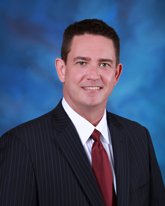Creating a child abuse registry, adding pay incentives for DFCS caseworkers, and developing a “panic button’’ to increase safety for workers in the field.
Those are among the recommendations of Gov. Nathan Deal’s Child Welfare Reform Council, whose final report was released Friday.
Deal told a news conference at the state Capitol that protecting Georgia’s children is the ultimate goal of the council’s proposals.
“As we enter the 2015 legislative session, these recommendations will provide a framework for strengthening the system and allow us to better serve our state’s children and those who work to protect them,’’ Deal said in a statement. “Every child deserves his or her best shot at a good life, and the work of this council is a step toward providing just that.”
The Georgia General Assembly will begin its annual session on Monday.
DFCS Commissioner Bobby Cagle told reporters Friday that Georgia’s goal is to lower caseloads for child welfare workers — to 15 cases per worker. Currently, Cagle said, the average is 22 cases for every caseworker, though he noted that the ratio can vary by county.
DFCS has been an agency under pressure for some time, with high caseloads, stagnant pay and low morale among its workers. Some workers have complained of feeling personally unsafe in situations they encounter.
In recent months, Georgia’s child welfare system has drawn criticism and tougher scrutiny, especially after the gruesome deaths of 10-year-old Emani Moss and 12-year-old Eric Forbes in 2013. Relatives were charged in those two cases.
The resulting fallout helped spark state hiring of more caseworkers and Deal’s creation of the council to review the child welfare system.

DFCS currently has 2,010 caseworkers, Cagle said. Five years ago, Georgia had 2,228 frontline workers.
GHN reported last year that some DFCS workers had caseloads of about 100.
The demand for state help, meanwhile, is growing. DFCS said that since a 24-hour central intake line debuted, the agency has received significantly more referrals of abuse and neglect of children.
Cagle also told reporters that the contracting process for a child welfare privatization pilot program has been canceled, because few vendors applied and the proposals submitted would have been too costly.
Cagle will report directly to Gov. Deal on DFCS matters.
Retaining the best, most experienced caseworkers is imperative, Cagle told reporters. He likened it to a football team.
“You want the most experienced players on the field,” he said.
The Child Welfare Reform Council is made up of juvenile court judges, child advocates, health care providers, educators, law enforcement officials, other state officials and former foster youths and foster parents.
The council’s chairwoman, Stephanie Blank, said in a statement Friday, “We look forward to the support of our citizens and lawmakers, who are committed to bettering the lives of our children, as we work together to put these recommendations into action.”
The council’s recommendations include:
** Creating district-level and state-level DFCS advisory boards.
** Increasing state agencies’ ability to share data on the care of children.
** Creating a child abuse registry within a state agency to maintain the names of those convicted of child abuse and neglect.
** Providing opportunities for DFCS to increase compensation for caseworkers and supervisors to bring it more in line with average salaries for similar jobs, with salary increases based on merit and qualifications.
** Continuing to work with Georgia Tech to develop a panic button or similar technology for caseworkers in order to improve their safety in the field and help them to feel secure.
** Publishing a quarterly DFCS scorecard with information and measures by which the government and the public can track the progress of workforce improvements.
Pat Willis, executive director of Voices for Georgia’s Children, said Friday that the breadth of details in the recommendations shows “the diverse input from families, providers, research experts, legal professionals – a good sign that all the issues were up for discussion.”
“Clearly the commission recognized that children will be safer and better served if DFCS caseworkers are prepared, protected, and compensated in line with the significant level of responsibility we give them for our most vulnerable children,” Willis added.

